San Francisco is known for the Gold Rush, so it’s a particularly fitting place to collect a gold nugget.
And so at the 2015 ACR/ARHP Annual Meeting in the Golden Gate City in November, the ACR and the ARHP honored a group of distinguished individuals who have made significant contributions to rheumatology research, education and patient care. The Rheumatologist spoke with the ACR winners about their individual contributions to advancing rheumatology.
ACR Presidential Gold Medal
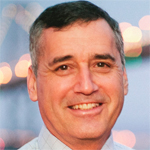 David Wofsy, MD, MACR, Distinguished Professor of Medicine and Microbiology/Immunology, Dean of Admissions, UCSF School of Medicine, Associate Director, Russell-Engleman Rheumatology Research Center, San Francisco
David Wofsy, MD, MACR, Distinguished Professor of Medicine and Microbiology/Immunology, Dean of Admissions, UCSF School of Medicine, Associate Director, Russell-Engleman Rheumatology Research Center, San Francisco
Background: Witnessing firsthand the confluence of patients struggling with disease and scientific advancements in both research and therapy, Dr. Wofsy says it was clear during his training that rheumatology was an advancing field and he just wanted to be “part of that progress.”
Mission accomplished.
A past president of the ACR and the first scientific director of the Lupus Clinical Trials Consortium, Dr. Wofsy’s accomplishments read like a rheumatology research hall of fame. He:
- Was one of the first to study therapeutic benefits of monoclonal antibodies in murine models for rheumatic diseases;
- Demonstrated the central role of CD4+ T cells in the development of autoimmune disease and the induction of immunologic tolerance;
- Clarified the role of tumor necrosis factor in murine lupus;
- Showed the beneficial effects of anti-IL-6 in a murine model for autoimmune disease; and
- Reported the therapeutic benefit of murine CTLA4Ig, the forerunner of abatacept.
“It is, of course, very gratifying to be recognized by peers,” he says. “But to be perfectly honest, the recognition is a bit embarrassing, given all of the people I consider to be more deserving.”
‘I learned from the example of my mentor, Bill Seaman, that generosity is the single most important quality in a mentor; generosity in resources, ideas, opportunities, credit & spirit.’ —Dr. Wofsy
Question (Q): Mentorship is extremely important to the practice of medicine these days. What lessons did you learn from your mentor?
Answer (A): Mentoring should be judged not by the quality of advice given, but by the tangible value of opportunities provided. I learned from the example of my mentor, Bill Seaman, that generosity is the single most important quality in a mentor; generosity in resources, ideas, opportunities, credit and spirit.
Q: What changes to the field have you witnessed over the course of your career?
A: There has been a remarkable reduction in disability caused by rheumatic diseases, due in part to revolutionary changes in drug therapy, in part to dramatic advances in joint replacement surgery and in part to advances in overall medical care.
Q: What advice do you have for the next generation of rheumatologists?
A: Despite mounting bureaucratic and economic challenges in academic life and in practice, don’t lose sight of what a privileged existence we lead. Appreciate your good fortune.
Q: If you could change one thing about the field of rheumatology, what would it be?
A: There are still large segments of our country underserved by rheumatology, especially in pediatrics, and in rural and economically disadvantaged communities. The workforce needs to expand and to substantially increase in racial and ethnic diversity.
ACR Distinguished Service Award
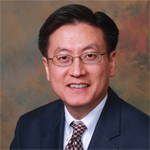 Sam Lim, MD, MPH, Associate Professor of Medicine and Epidemiology/Clinical Director, Division of Rheumatology, Emory University School of Medicine; Chief of Rheumatology, Grady Health System, Atlanta
Sam Lim, MD, MPH, Associate Professor of Medicine and Epidemiology/Clinical Director, Division of Rheumatology, Emory University School of Medicine; Chief of Rheumatology, Grady Health System, Atlanta
Background: Dr. Lim wishes more pre-med and medical students were exposed to the field early on, like he was, courtesy of a lupus lecture in his second year of medical school.
“Rheumatology has all the excitement of other fields and sometimes more,” he says. “We need to do a better job of engaging the world’s best and brightest.”
A native of Seoul, South Korea, who grew up in St. Louis and has trained in North Carolina and Brooklyn, N.Y., Dr. Lim directs the Grady Lupus Clinic and is the principal investigator of the Georgia Lupus Registry, a population-based registry funded by the Centers for Disease Control and Prevention (CDC). He is the consortium chair for The Lupus Initiative and received the ACR Clinical Investigator Fellowship Award from 2004–07.
He also holds research grants from the National Institutes of Health and the CDC.
‘Rheumatology has all the excitement of other fields & sometimes more. We need to do a better job of engaging the world’s best & brightest.’ —Dr. Lim
Q: What is it about rheumatology that keeps you engaged?
A: Rheumatologic conditions touch so many aspects of life and the individual. In order to tackle my passion of reducing racial health disparities in lupus, we cannot focus on just one thing. Life isn’t that simple. A minority individual living with lupus represents biologic factors that drive toward more severe disease, which are obviously very important. But the biology is altered through access [of] the healthcare system, the quality of care received and layers of social determinants of health. At the risk of spreading oneself too thin, I think it is imperative that we strive for excellence, clinically and in research on all fronts. I’m extremely fortunate to be in an environment where I can explore these areas on multiple fronts.
Q: What made SLE your career focus?
A: The multi-systemic features, gender/racial disparities and chronic nature really captured my heart. I was fortunate to be surrounded by wonderful mentors, and the rest is history.
Q: Even within SLE, why the interest in racial disparities?
A: SLE is, by its very nature, a disease of racial disparities. For reasons we do not quite fully understand, it afflicts minorities more than whites. In the area that I serve, we have tremendous numbers of African Americans afflicted by lupus. Hispanics and certain American Indian/Alaska Native groups are also disproportionately afflicted. Keep in mind that these are minority women, at the peak of their careers and at a time when they are establishing their families. Combine it all and one can see how disparities can be magnified. Studying lupus gives us insight to these broader issues.
ACR Distinguished Service Award
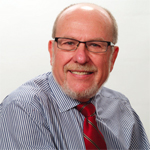 Arthur Weinstein, MD, FACP, FRCP, MACR, Professor of Medicine, Georgetown University Medical Center, and Associate Chairman, Department of Medicine, Washington Hospital Center, both in Washington, D.C.
Arthur Weinstein, MD, FACP, FRCP, MACR, Professor of Medicine, Georgetown University Medical Center, and Associate Chairman, Department of Medicine, Washington Hospital Center, both in Washington, D.C.
Background: Dr. Weinstein has seen rheumatic disease in Toronto, London and the tony Georgetown section of Washington, D.C. Minus the patients’ accents, the feedback is the same.
“Patients with rheumatic diseases around the world share the same concerns and seek physicians who are knowledgeable about their conditions and can help them cope—medically and psychologically—with them,” he says. “Rheumatologists everywhere have a similar goal to apply modern, evidence-based therapies for their patients suffering from arthritis and systemic diseases. My travels have reinforced my conviction that I chose the right career path for myself.”
That path had stops at University of Toronto Medical School, Hammersmith Hospital in London and University of Connecticut Medical School. He is a longtime advocate for methotrexate therapy and has researched clinical and immunological features of lupus, as well as the laboratory diagnosis and treatment of Lyme disease and post-Lyme disease syndrome.
Dr. Weinstein has served on multiple ACR committees and was appointed a master in 2009. He’s been editor of Rheumatology and Musculoskeletal Medicine for Primary Care and the Rheumatology Section of e-Medicine.
‘Rheumatologists everywhere have a similar goal to apply modern, evidence-based therapies for their patients suffering from arthritis & systemic diseases.’ —Dr. Weinstein
Q: You were an early advocate of methotrexate therapy. Why?
A: In the 1970s, our medical treatments for RA were, for the most part, terribly inadequate, and other very aggressive therapies, including chemotherapy, had been used with some effect but with major side effects. I had observed oral methotrexate benefit patients with psoriasis for which it was then being used, and sometimes also psoriatic arthritis that some of these patients had. So I thought it might be good for RA.
Q: Why are you a rheumatologist?
A: There was no epiphany here, but a gradual resolution, first as a medical student developing an interest in immunology and seeing a patient with lupus and then as an intern and resident encountering great clinicians and teachers who were and are rheumatologists. Rheumatology seemed to combine features of classical medicine—hands-on encounters with patients, diagnostic acumen, developing long-term physician–patient relationships—with fascinating and challenging inflammatory and non-inflammatory illnesses to deal with.
Q: Your biography recounts more than 75 trainees currently in academic or clinical practice. A man who keeps count is proud of the accomplishment. Tell me why.
A: I am very proud to have helped to train a few generations of rheumatologists who have expanded our knowledge of the rheumatic diseases, who teach others and who help patients every day. Mentors are guides who teach by what they say as well as by what they do and how they behave. I had many diverse and dedicated mentors in clinical medicine, rheumatology, education and research. The challenge has been to live up to their examples.
ACR Excellence in Investigative Mentoring Award
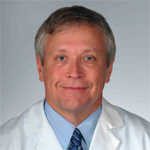 Gary Gilkeson, MD, Professor of Medicine, and Associate Dean for Faculty Affairs and Faculty Development, Medical University of South Carolina (MUSC), Charleston, S.C.
Gary Gilkeson, MD, Professor of Medicine, and Associate Dean for Faculty Affairs and Faculty Development, Medical University of South Carolina (MUSC), Charleston, S.C.
Background: It was an absence of rheumatologists that inspired Dr. Gilkeson’s career.
“While in the Air Force as a general internist serving repayment for medical school, I was at a teaching hospital with all subspecialties but rheumatology,” he says. “I, thus, saw a large number of rheumatology patients and was fascinated by the different rheumatic diseases and the lack of effective therapies.”
Under the mentorship of Duke University immunologist David Pisetsky, MD, PhD, system lupus erythematous (SLE) emerged as a career focus. Dr. Gilkeson has since researched higher prevalence of lupus in women and in African Americans, compared with Caucasians.
“Over the last 25 years, my motivation has been sustained by the courageous lupus patients I have cared for,” he says. “I was particularly motivated to find a better therapeutic approach by my patients who succumbed to their disease despite their, and my, efforts.”
Dr. Gilkeson earned his medical degree at the University of Texas Southwestern Medical School in Dallas in 1979, completed his residency at North Carolina Memorial Hospital and spent four years as staff internist at Carswell Air Force Base in Fort Worth, Texas. He’s been at MUSC since 1996. He is on the Board of Directors of the Lupus Foundation of American and chairs its Medical and Scientific Advisory Board.
‘It is very rewarding to see those you mentor have success & proceed on to independent research careers of their own.’ —Dr. Gilkeson
Q: What drew you to SLE as an area of career focus?
A: During training, I found it to be a complex, difficult disease for which we did not have a lot to offer our patients. I remembered, specifically, a young man from residency who developed lupus almost overnight and died within a few days as we could not find any therapy that could stop the disease. During fellowship, Dr. Pisetsky was doing very interesting work in lupus regarding anti-DNA antibodies. I joined his laboratory and continued to be challenged and intrigued by the disease.
Q: And from there, why the focus on the disease’s prevalence in different races/sexes?
A: Simplistically, I thought that since these two disparities are the most profound in lupus, then if we could begin to understand the mechanisms by which lupus is so prevalent in women and minorities, we could gain insight into the disease. It is also compelling to see how this disease impacts so many young women, leading to a desire to try to find something to help.
Q: Your mentees have gone on to earn nine K awards from the National Institutes of Health. What does that mean to you?
A: It is very rewarding to see those you mentor have success and proceed on to independent research careers of their own. As with any mentoring experience, I have gotten back more than I gave. It is also reassuring that these lines of investigation will continue.
ACR Distinguished Fellowship Program Director Award
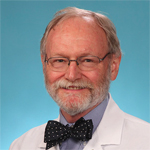 Richard Brasington, MD, Fellowship Program Director, Professor of Medicine, Division of Rheumatology, Washington University School of Medicine, St. Louis
Richard Brasington, MD, Fellowship Program Director, Professor of Medicine, Division of Rheumatology, Washington University School of Medicine, St. Louis
Background: First, Dr. Brasington wanted to be a teacher. Then, he wanted to be Marcus Welby, MD, in his native North Carolina. Then, he wanted to be a rheumatologist. Third time’s the charm.
“There was something to me that was really kind of fascinating about people that had swollen joints,” he says. “One of my first patients [when I was] a second-year medical student had polyarticular gout. I saw that there was a lot to be learned through the joints.”
Dr. Brasington joined Washington University in 1996 to direct the Fellowship Program. He felt like it was the job he’d always waited for. Now, he has trained nearly 50 fellows and pioneered the use of a Rheumatology Objective Structured Examination (ROSE). In 2014, he received the Samuel Goldstein Award for Leadership in Medical Education, one of Washington University School of Medicine’s highest awards.
‘I see my job as helping [fellows] learn & helping them find a way to do what they want to do.’ —Dr. Brasington
Q: You’ve trained one doctor who went on to be a fellowship program director and three who are assistant program directors. How proud are you of that?
A: It’s very exciting. One of those people, when he was looking for a job, told a doctor at the Cleveland Clinic, ‘I want to be just like Dr. Brasington.’ I thought that was rather touching.
Q: Does that tell you you’ve done your job?
A: I see my job as helping [fellows] learn and helping them find a way to do what they want to do. And they want to do a lot of different things. One of the things I cherish the most is I really think I’ve trained them to think for themselves. A good example of that is in January [2015], I was out for six weeks with back surgery. One of my senior fellows and one of the junior faculty that had just been a fellow took care of my patients, and they did something completely different than what I would have done. I was actually pleased that they were willing to think for themselves.
Q: Why do you believe you’ve been successful?
A: When you have a chance to do something that you have a passion for and you are naturally good at, it’s very, very easy to succeed. But it wasn’t until the age of 45, 20 years after I started medical school, that I actually got a chance to do what I wanted to do. It’s one reason that when I got to Washington University in 1996, I just hit the ground running. It was like, ‘Man, I’ve been wanting to do this for a long time.’
ACR Distinguished Fellowship Program Director Award
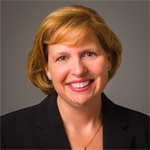 Beth Jonas, MD, Associate Professor of Medicine/Rheumatology and Director, Rheumatology Fellowship Training Program, Thurston Arthritis Research Center, University of North Carolina, Chapel Hill, N.C.
Beth Jonas, MD, Associate Professor of Medicine/Rheumatology and Director, Rheumatology Fellowship Training Program, Thurston Arthritis Research Center, University of North Carolina, Chapel Hill, N.C.
Background: Teaching is in Dr. Jonas’ DNA, both literally and figuratively. Her father and sister are both teachers, so the intersection of academia and rheumatology was a natural career choice that quickly solidified when she was tapped as chief resident at the George Washington University in Washington, D.C.
“I really enjoyed that year of interacting with junior residents and students,” Dr. Jonas says. “It really put the bug in my bonnet about teaching and about sharing my interest and expertise.”
She’s been doing it ever since, and has led the rheumatology program at UNC since 2001. She’s also a founding member of Carolinas Fellows Collaborative, which aims to develop educational protests for rheumatology fellows across North and South Carolina.
She is an active ACR member, having served on several committees. She was also awarded a 2015 Rheumatology Research Foundation Clinician Scholar Educator Award.
‘I wake up every day, tremendously excited by rheumatology. Our energy about what we do can be infectious.’ —Dr. Jonas
Q: Why is training your passion?
A: We have a shortage of rheumatologists, and it is really acutely clear to many people now. We’ve been talking about it for a long time. This is the first time in the last few years that I’ve really felt that pressure in my practice. It’s very real to us here now that we don’t have enough practicing rheumatologists. Our goal to train people to go out into practice to take care of people is very, very important.
Q: You work with medical students, too?
A: When you’re a training program director, you’re training people that have already decided they want to be rheumatologists. One of our other goals is to find people who don’t know yet they want to become rheumatologists and help them decide that this is the type of career that will be satisfying for them. We’re now working a lot with medical students at our university, with the hope that we’re going to get more people interested in the field.
Q: How do you connect with students and fellows?
A: I wake up every day, tremendously excited by rheumatology. Our energy about what we do can be infectious. If you’re infectious about what you do, you have learners that feel that excitement, and you can share with them the importance of the work you do—and the importance to the patients of the work that you do.
2015 By the numbers
11 ACR Awards of distinction 32 Masters designated
ACR Distinguished Clinical Investigator Award
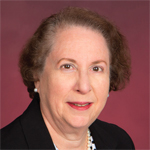 Ellen Ginzler, MD, MPH, MACR, Distinguished Teaching Professor of Medicine, Chief of Rheumatology, State University of New York Downstate Medical Center, Brooklyn
Ellen Ginzler, MD, MPH, MACR, Distinguished Teaching Professor of Medicine, Chief of Rheumatology, State University of New York Downstate Medical Center, Brooklyn
Background: Dr. Ginzler’s interest in rheumatology began in medical school, where the combination of “fascinating” patients and dynamic, “selfless” mentors steered her career path.
For four decades, she has studied the clinical aspects of SLE. As principal investigator of the largest investigator-initiated trial ever carried out for SLE, she helped establish a new standard for treating lupus nephritis, with the acceptance of mycophenolate mofetil induction therapy as the standard of care.
In addition to the ACR, she’s been active in such organizations as the Systemic Lupus International Collaborating Clinics and Lupus Clinical Trials Consortium. She was a board member of the ACR’s Research and Education Foundation from 2002–05, and became a Master of the ACR in 2009.
‘Find someone who challenges you, find someone whose intellect you are excited by, and learn from that person.’ —Dr. Ginzler
Q: How did mentors influence your career?
A: To me, mentoring involves everything that I do—bringing that excitement to the people that I train or that I encounter along the way. … I try to point out the things that are exciting. I try to make sure that people get credit for what they do. I always want to see the people that worked with me become first authors on papers, and get the recognition for their achievements. That makes me feel good, and it certainly reflects on me.
Q: What advice do you have for the next generation of rheumatologists?
A: I think the most important thing is to find something that is fulfilling and intellectually exciting. You know, financially, rheumatology is not the best field to go in to. You need to be excited about what you do. I don’t know that it matters whether you pick lupus or osteoarthritis. Find someone who challenges you, find someone whose intellect you are excited by, and learn from that person.
Q: What has changed the most since you started practicing rheumatology?
A: In lupus, we’ve gone from very little understanding, either from the pathophysiology of the disease or the availability of new treatments, to understanding how they work. I think that’s one of the things I’m proudest of in my career. I’ve really had an opportunity, maybe worldwide, to change how patients with lupus are treated.
Q: What does an award from your peers mean to you?
A: The recognition that I get from my peers is certainly a very large part of what makes me feel fulfilled. We are still a small enough subspecialty that this is possible; most of us have heard of all of the people in rheumatology who do good things. That’s very rewarding.
ACR Distinguished Clinician Scholar Award
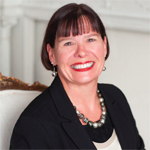 Sharon Kolasinski, MD, Professor of Clinical Medicine, Division of Rheumatology, University of Pennsylvania Perelman School of Medicine, Director, Penn Musculoskeletal Center, Philadelphia
Sharon Kolasinski, MD, Professor of Clinical Medicine, Division of Rheumatology, University of Pennsylvania Perelman School of Medicine, Director, Penn Musculoskeletal Center, Philadelphia
Background: Teaching makes Dr. Kolasinski tick. She has worked as program director of the UPenn rheumatology fellowship and rheumatology director of the Penn Musculoskeletal Center, and helped develop the medical school curriculum for the newly formed Cooper Medical School of Rowan University. She’s even embarking on leadership lessons at the renowned Wharton School of Business.
She relishes teaching her patients about diseases and treatments, and how they can “take the best possible care of themselves,” she says. “And teaching our trainees about how amazing rheumatology is, and what a privilege we have in getting to know our patients, being part of what can make such a difference in their lives.”
She has received the Arthritis Foundation’s Quality of Life Professional Education Award and the Joseph Lee Hollander Award for Excellence and Achievement in Rheumatology. She served on the ACR’s Committee on Rheumatology Workforce and Training Issues, and helped bring the match to the rheumatology fellowship recruitment process, as well as the in-training examination for rheumatology fellows.
‘A combination of the intellectual challenge of diagnosing & treating rheumatic diseases, along with the huge opportunity to make a difference in patients’ lives, is the essence of being a rheumatologist.’ —Dr. Kolasinski
Q: What is the biggest change you’ve witnessed over the course of your career?
A: The emergence and prominence of the role of the clinician-educator in academic medicine. … It is only relatively recently that academic institutions, training programs and accrediting agencies have supported the professionalization and elevation of the medical educator. An appreciation for the unique contributions clinician-educators make to inspiring students, recruiting the next generation and helping trainees cultivate their own best career paths has grown tremendously.
Q: What is it about rheumatology that keeps you so engaged?
A: A combination of the intellectual challenge of diagnosing and treating rheumatic diseases, along with the huge opportunity to make a difference in patients’ lives, is the essence of being a rheumatologist. And, not least, helping our fellows, residents and students share our excitement—you can’t beat it.
Q: What is the value of mentoring?
A: The importance of mentorship cannot be underestimated. It isn’t just the imparting of knowledge, the practical advice and the help in making connections. Mentorship is a very powerful expression of the mentor’s belief in what they do and, even more importantly, of their belief in their mentee.
Q: What does an award from your peers mean to you?
A: It is such an extraordinary honor to win this award, and so truly humbling when I think of what it means to be endorsed by my peers in this way, not to mention to see my name alongside the past recipients.
ACR Henry Kunkel Young Investigator Award
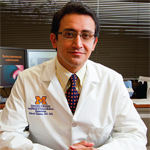 Dinesh Khanna, MD, MSc, Frederick G.L. Huetwell Professor of Rheumatology, Professor of Medicine, University of Michigan, Ann Arbor
Dinesh Khanna, MD, MSc, Frederick G.L. Huetwell Professor of Rheumatology, Professor of Medicine, University of Michigan, Ann Arbor
Background: Ask Dr. Khanna where his interest in scleroderma and clinical research comes from, and he says the answer is easy: excellent mentors at the University of California Los Angeles, where he completed both his fellowship and Master’s degree.
“My mentors taught me to be honest, fair, hardworking and accountable,” he says. “I have tried to incorporate these qualities as I mentor [more than] 30 investigators around the globe.”
Dr. Khanna was part of the steering committee to develop the new ACR/EULAR classification of scleroderma, and was co-principal investigator on the ACR guidelines for the management of gout. He currently leads National Institutes of Health-funded and pharmaceutical trials, and is carving a niche by leading an international effort to develop a response index for clinical trials in scleroderma, “which may facilitate approval of new agents.”
‘No. 1, be adaptable, because rheumatology is going to change a lot.’ —Dr. Khanna
Q: What is it about rheumatology that keeps you so engaged?
A: Scleroderma is an orphan disease affecting between 250,000 and 300,000 people in the U.S. There is no cure, no effective treatments. However, we are making strides in learning about the cause of scleroderma, and developing and testing new effective therapies.
Q: Your award is from your peers; what does that mean to you?
A: It is a great honor to receive this award from my peers. It provides validation of work done over the years during early mornings, late nights, weekends and even during vacation. It provides encouragement and inspiration to me to continue the path that I have chosen.
Q: What advice do you have for your fellow clinical researchers?
A: No. 1, be adaptable, because rheumatology is going to change a lot; No. 2, understand systems biology and big data; and No. 3, if you’re predominantly a clinician or an investigator, get involved in some formal administrative activities, in education, in the business side of medicine—just something different. When things aren’t going well with your major, it’s good to have a minor that is ticking over well.
Q: What has the ACR meant to you?
A: The ACR has been my professional home, the most valuable way for me to network with colleagues and the source of much of my professional development and education. It has been a source of support for our trainees and is, thus, creating our future.
Q: If you could change one thing about the field of rheumatology, what would it be?
A: Provide greater support to our junior investigators to continue the path of research.
ACR Distinguished Basic Investigator Award
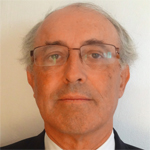 Pierre Miossec, MD, PhD, Professor of Clinical Immunology, University Claude Bernard, Lyon, France
Pierre Miossec, MD, PhD, Professor of Clinical Immunology, University Claude Bernard, Lyon, France
Background: Dr. Miossec describes his career as a “bridge” between medicine and biology, one on which he’s trained and worked with some of the best in the business. His discoveries have affected countless lives, and his mantra has been to always “work on my own patients.”
“My patients are very pleased to be a part of the research,” he says. “The important thing is they don’t feel the research is for them, but rather for the disease and for others.”
Dr. Miossec came to the U.S. in 1983, as a research fellow of the late Morris Ziff, MD, PhD, at the University of Texas at Dallas. Dr. Miossec was the first to identify IL-1 at the site of arthritis and its effect on lymphocyte migration, and his work on the regulation of IL-1 function by IL-1RA and by anti-IL-1 autoantibodies laid the foundation of IL-1 inhibition.
He earned his PhD in immunology from the University of Marseille in 1987, and later showed the anti-inflammatory properties of IL-4 and the consequences of its relative absence in RA joints. He was the first to identify the pro-inflammatory and destructive properties of IL-17, and the concept of its production by a new T cell subset, now referred to as Th17 cells. He then showed that combining IL-17 and TNF inhibition was more potent—the basis for numerous therapies targeting IL-17 and leading to approval of the first anti-IL-17 antibody in January 2015.
‘We are losing the human aspects of medicine. We spend too much time in front of a computer instead of with our patients.’ —Dr. Miossec
Q: What did you learn from Dr. Ziff?
A: ‘Do your best.’ He has been an inspiration for my whole career. For instance, working on manuscripts, I spent hours next to him, word by word. We made sure every word was correct, reviewing and improving the manuscript. His advice was ‘always fight with the editor,’ something I have tried with success a few times, but often not.
Q: What advice do you have for the next generation of rheumatology researchers?
A: I see a danger in losing the bridge between basic and clinical research. Today, you need to get ideas from a large number of fields in order to really move forward as a team.
Q: What does an award from your peers mean to you?
A: It is a great honor to get such international recognition for my arthritis work and my immunology work. I made my first oral presentation at the ARA (now ACR) in 1984, the year I became a member. This is a nice achievement after years of work and friendship.
Q: What single change would benefit the field?
A: We are losing the human aspects of medicine. We spend too much time in front of a computer instead of with our patients. That’s not specific to rheumatology, of course.
ACR Paulding Phelps Award
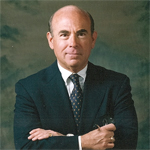 Stuart Kassan, MD, MACR, Distinguished Clinical Professor of Medicine, University of Colorado, Denver School of Medicine; practicing rheumatologist, Colorado Arthritis Associates; CMO, Infusion Center of Denver and MPP Infusion Partners
Stuart Kassan, MD, MACR, Distinguished Clinical Professor of Medicine, University of Colorado, Denver School of Medicine; practicing rheumatologist, Colorado Arthritis Associates; CMO, Infusion Center of Denver and MPP Infusion Partners
Background: Dr. Kassan started his medical career as a young boy, joining his father on house calls. His dad loved being a physician “more than anything,” a feeling that was mutual between father and son. “Anyone who loves something that much, it must be very special,” Dr. Kassan says. “For me, it’s been very special, as well.”
In 1978, while working at the National Institutes of Health, he published a sentinel paper on the association of Sjögren’s syndrome with lymphoma. “That was extremely pivotal, in terms of forming my career,” he says. He since has testified before Congress on the subject and authored more than 40 articles, chapters and books about Sjögren’s syndrome, SLE and related diseases.
A longtime member and volunteer of the ACR, he served as a board member of the Rheumatology Research Foundation and was named Master of the ACR in 2012.
‘We can give our patients more hope than we’ve ever been able to give them before, and we are now able to prevent deformities that used to develop before the advent of biologics.’ —Dr. Kassan
Q: What about rheumatology keeps you engaged in your work?
A: The patients. I think being a physician and a rheumatologist is a very sacred thing. People tell me things that they tell nobody else. You become a part of their life. That is extremely important.
Q: What’s the biggest advance you’ve seen in rheumatology in your career?
A: We can give our patients more hope than we’ve ever been able to give them before, and we are now able to prevent deformities that used to develop before the advent of biologics. That’s been amazing.
Q: What does an award from your peers mean to you?
A: That’s probably the most gratifying part of this award. It reflects the fact that your peers respect you, and you’ve done a good job in their eyes.
Q: What has the ACR meant to you and your career?
A: I think the ACR is an organization that has allowed rheumatology to flourish. I’ve also been very active in the Rheumatology Research Foundation. That has really set the tone for future rheumatologists to be interested in the practice of rheumatology and be funded for future research.
Q: What advice do you have for the next generation of rheumatology researchers?
A: Find something in the field that you are passionate about. It really allows you to be an expert in that area, which is a very gratifying thing. It really sets the tone for your future research and is extremely fulfilling.
2015 ACR Masters
Recognition as a Master of the American College of Rheumatology is one of the highest honors the ACR bestows on a member. This distinction is given to members, age 65 or older, who have made outstanding contributions to the field of rheumatology through scholarly achievement and/or service to their patients, students and profession. Since 1987, the ACR has honored more than 300 exceptional leaders in the field of rheumatology as Masters. This year, those being named Masters are:
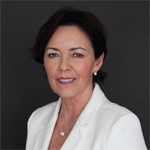
Dr. Amigo
Mary-Carmen Amigo, MD
Head Rheumatology Service,
The American British Cowdray (ABC) Medical Center
Mexico City, Mexico
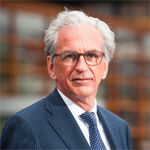
Dr. Breedveld
Ferdinand Breedveld, MD
Professor of Rheumatology;
Head, Department of Rheumatology; Head, Division of Internal Medicine; Head, Leiden University Medical Centre, Leiden University,
Leiden, The Netherlands
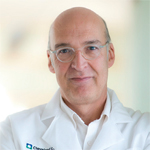
Dr. Calabrese
Leonard H. Calabrese, DO
RJ Fasenmyer Chair of Clinical Immunology;
RJ Fasenmyer Center for Clinical Immunology,
Cleveland Clinic Foundation, Cleveland
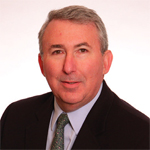
Dr. Cohen
Stanley Cohen, MD
Medical Director, Rheumatology
Division, Presbyterian Hospital;
Clinical Professor, Department of Internal Medicine, Texas
Southwestern Medical School; Co-Medical Director, Metroplex Clinical Research Center, Dallas
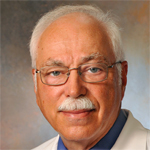
Dr. Curran
James Curran, MD
Professor of Clinical Medicine,
Pritzker School of Medicine,
University of Chicago, Chicago
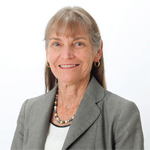
Dr. Dore
Robin K. Dore, MD
Rheumatologist,
Robin K. Dore MD Inc.,
Tustin, Calif.

Dr. Edwards
N. Lawrence Edwards, MD
Professor of Medicine, Vice
Chairman, Department of Medicine, University of Florida,
Gainesville, Fla.
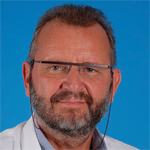
Dr. Gay
Prof. Dr. Med. Steffen Gay
Professor of Experimental Rheumatology, University of Zurich,
University Hospital, Switzerland,
Zurich, Switzerland
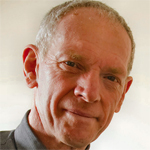
Dr. Helliwell
Philip Helliwell, MD, PhD
Senior Lecturer in Rheumatology,
Leeds Institute of Rheumatic and Musculoskeletal Medicine,
University of Leeds, Leeds, United Kingdom
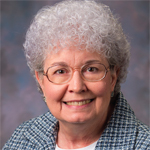
Dr. Higgins
Gloria Higgins, MD, PhD
Professor Emeritus,
The Ohio State University Department of Pediatrics,
Division of Rheumatology, Nationwide Children’s Hospital,
Columbus, Ohio
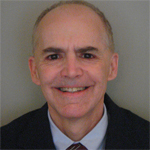
Dr. Hoffman
Bruce Hoffman, MD
Clinical Associate Professor
of Medicine, Drexel University
College of Medicine; Chief,
Division of Rheumatology, Aria Health System, Philadelphia
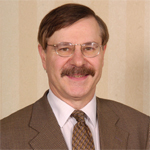
Dr. Inman
Robert Inman, MD
Professor of Medicine and Immunology,
University of Toronto; Deputy Physician in Chief,
Research, University Health Network;
Director, Spondylitis Program,
Toronto Western Hospital; Senior Scientist,
Toronto Western Research Institute, Toronto, Ontario, Canada
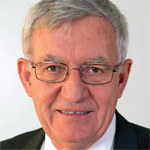
Dr. Kvien
Tore Kvien, MD, PhD
Head, Department of Rheumatology,
Diakonhjemmet Hospital, Professor,
University of Oslo, Oslo, Norway
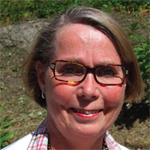
Dr. Lundberg
Ingrid Lundberg, MD, PhD
Full Professor of Rheumatology,
Senior Consultant, Rheumatology Unit
Department of Medicine, Karolinska University Hospital,
Solna, Karolinska Institutet,
Stockholm, Sweden
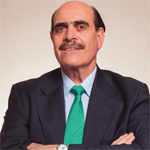
Dr. Maldonado-Cocco
Jose Maldonado-Cocco, MD
Consulting Professor of
Rheumatology, University of
Buenos Aires School of Medicine,
Buenos Aires, Argentina
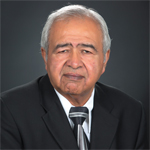
Dr. Mody
Girish M. Mody, MD
Aaron Beare Family Professor of
Rheumatology, School of Clinical
Medicine, College of Health Sciences, University of KwaZulu-Natal,
Durban, South Africa
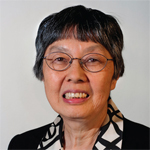
Dr. Oen
Kiem Oen, MD
Professor, Department of Pediatrics
and Child Health,
University of Manitoba,
Winnipeg, Manitoba, Canada
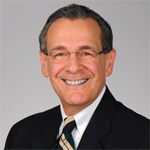
Dr. Passo
Murray H. Passo, MD, MEd
Professor of Pediatrics, Medical
University of South Carolina,
Charleston, S.C.
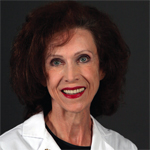
Dr. Prete
Pamela E. Prete, MD, FACP
Section Chief of Rheumatology,
Long Beach Veterans Administration Hospital;
Professor Emerita of Medicine, Recalled,
University of California, Irvine,
Irvine, Calif.
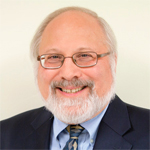
Dr. Romain
Paul Romain, MD
Deputy Editor,
UpToDate, Waltham, Mass.;
Division of Rheumatology,
Beth Israel Deaconess Medical Center,
Harvard Medical School, Boston
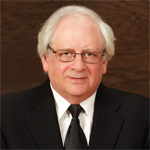
Dr. Rosenberg
Alan Rosenberg, MD, FRCPC
Professor, Department of Pediatrics,
College of Medicine, University of
Saskatchewan, Saskatoon,
Saskatchewan, Canada
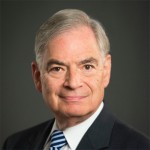
Dr. Schimmer
Barry Schimmer, MD
Clinical Professor of Medicine,
Perelman School of Medicine,
University of Pennsylvania;
Chief, Section on Rheumatology,
Pennsylvania Hospital, Philadelphia
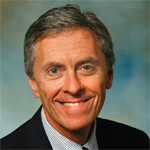
Dr. Schned
Eric Schned, MD
Rheumatologist,
Park Nicollet Clinic,
Minneapolis
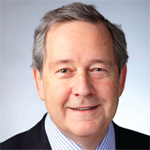
Dr. Smolen
Josef Smolen, MD
Professor of Medicine, Chairman,
Department of Medicine 3, Division
of Rheumatology, Medical University
of Vienna; Chairman, 2nd Department of Medicine, Hietzing Hospital,
Vienna, Austria
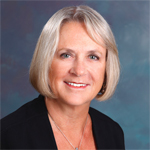
Dr. Strand
Vibeke Strand, MD
Adjunct Clinical Professor,
Division of Immunology/Rheumatology,
Stanford University School of Medicine;
Biopharmaceutical Consultant,
Stanford, Calif.
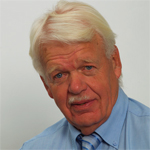
Dr. van der Linden
Sjef van der Linden, MD
Professor Emeritus,
Department of Internal Medicine,
Division of Rheumatology,
Maastricht University Medical Center,
Maastricht, The Netherlands
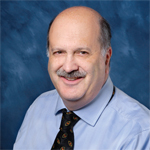
Dr. Wallace
Daniel Wallace, MD
Clinical Professor of Medicine,
Associate Director of Rheumatology Fellowship Program,
Cedars-Sinai Medical Center,
David Geffen School of Medicine,
University of California,
Los Angeles, Los Angeles
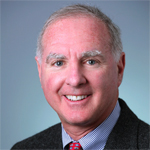
Dr. Weinblatt
Michael E. Weinblatt, MD
R. Bruce and Joan M. Mickey
Distinguished Chair in Rheumatology,
Division of Rheumatology,
Immunology and Allergy,
Brigham and Women’s Hospital; John R. and Eileen
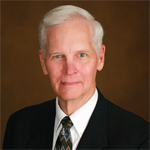
Dr. West
Sterling West, MD, MACP
Professor of Medicine,
University of Colorado School of Medicine,
Aurora, Colo.
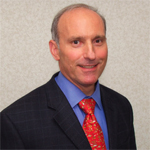
Dr. Yood
Robert A. Yood, MD
Chief of Rheumatology, Reliant
Medical Group and Saint Vincent Hospital,
Clinical Professor of Medicine,
University of Massachusetts Medical School,
Worcester, Mass.
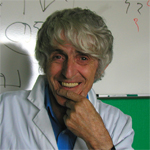
Dr. Youinou
Pierre Youinou, MD, DSc
Professor Emeritus, Department of Immunopathology, European
University of Brittany, Brest, France



